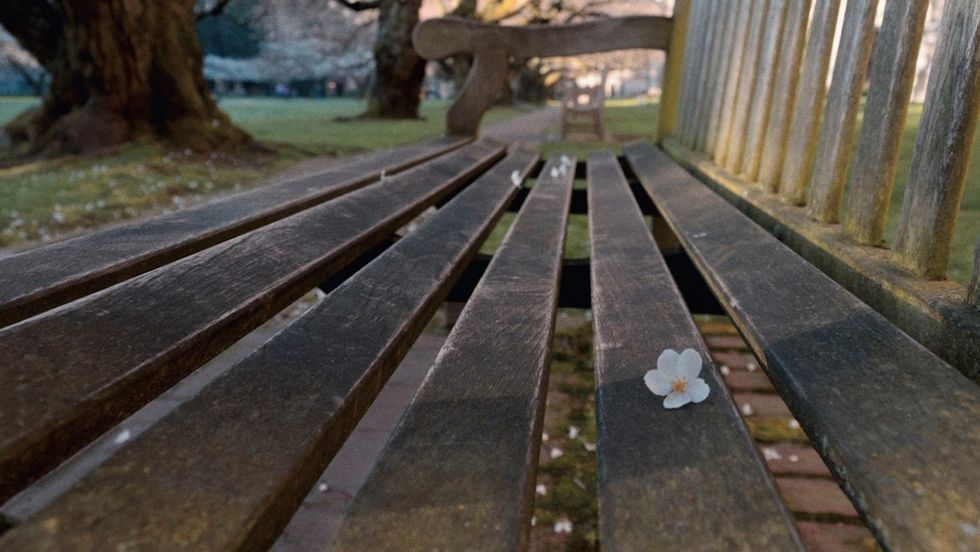Before you continue reading, stop, call your university's on-campus student psychological services and book an appointment to see a therapist.
I know what you're thinking: "I don't need a therapist. I'm perfectly fine. Besides, there's no way in hell I'm going to sit in a chair and cry to a stranger for an hour while they jot down notes about my problems."
But therapy and counseling are so much more than a chance to vent to some rando with a master's degree. It's an opportunity to learn a lot about yourself, understand how you're feeling, why you feel the way you feel, cope with those emotions, and improve yourself from the inside out. I'm a testament to that.
At my university, we have CAPS, (Counseling And Psychological Services). I have been attending FGCU for three years and never once thought about visiting CAPS, until last semester. A friend who had begun going suggested it to me. She said that even if you think you're fine, you never know what emotions you're burying in your subconscious. It couldn't hurt to explore your mind a little more, you know? So one day after class when I was free I decided to stop in.
What they don't tell you about therapy is that it won't work unless you're willing to work. Your therapist doesn't have a magic wand that they wave and suddenly "fix" you and all your problems. They're simply there to listen, occasionally ask questions, and nudge you in the direction of whatever end-goal you set for yourself. It's your job to take whatever you see fit from your session and apply it to your life.
My therapist was a young woman, and very sweet. I remember my first visit being extremely awkward. I sat down in her dimly lit office on this big comfy sofa. She sat across from me and asked me one question, "What do you hope to accomplish here?"
I honestly didn't know. It wasn't like I had gone through any sort of trauma or abuse. I wasn't clinically depressed or suicidal. I wasn't an addict or hearing voices in the back of my head. I was simply a college girl who struggled with the things that most college girls did: self-esteem, stress, mild anxiety. But those weren't things I necessarily wanted to have a conversation about.
One thing that I hadn't known but quickly learned about myself is that I am really...well...cold. I can be guarded and detached and dismissive. I ball myself up really tight in an effort to protect my already damaged ego. Often times when my therapist would ask me questions about things I felt insecure about or my trust issues with men or people that have hurt me in the past I replied with laughter. Not nervous laughter. Just hysterical laughter. It was strange. But it was easier than letting it show on my face that I held a lot of pain regarding those subject matters. Whenever I felt a swell in my chest or tears burning behind my eyelids I cracked a joke or made an off-handed sarcastic comment and smiled. Finally, my therapist asked me why I kept making light of my negative experiences. I told her I wasn't sure. But she did.
I'm afraid of being vulnerable.
If you think about it, most of our generation has the same fear. We live in the age of social media and so we're completely desensitized to tons of horrible things. Not to mention that it's become cool to not care. People are constantly posting memes online about how they "DGAF" about anything or anyone. Hashtags like #NoNewFriends go viral, encouraging everyone to be just as detached from human connection.
We naturally want to block any emotion that will give more people the chance to hurt us. We sacrifice our vulnerability in hopes that we won't ever have to feel that pain again. But I realized that all that does over time is create a shell of a person, since you're not able to deprive your mind of one element without affecting the rest. You cannot be whole without allowing yourself to feel ALL of your feelings.
At the end of the last session, I had with my therapist she gave me a link to a TedTalks video to watch. The speaker was a woman named Brene Brown. She talked about how she was in a constant fist fight with her vulnerability, trying to make it go away. I subconsciously do the same thing every day. I kind of suck my shameful or fearful emotions up like a vacuum and keep them hidden. Being soft and being sensitive is lame, I remind myself. But there's nothing lame about acknowledging that you are hurting.
The most memorable thing from that TedTalks was when Brene emphasized that we can’t selectively numb our emotions. We can’t numb one emotion without stifling our joy or happiness. It was a revelation for me. It explained the reason why for a long time, and still to this day, I struggle with happiness.
We equate being emotional to being weak. We equate being vulnerable to being powerless. But there is so much power in owning your vulnerability. There is so much beauty in opening yourself up to someone completely and unapologetically. Being an expressive, emotional being isn't necessarily a bad thing. It's how you balance those emotions is what is important.
Our experiences, of course, shape our attitude about the world. But they don't have to negatively affect relationships with yourself and others in the future.
















